Ece Kamar
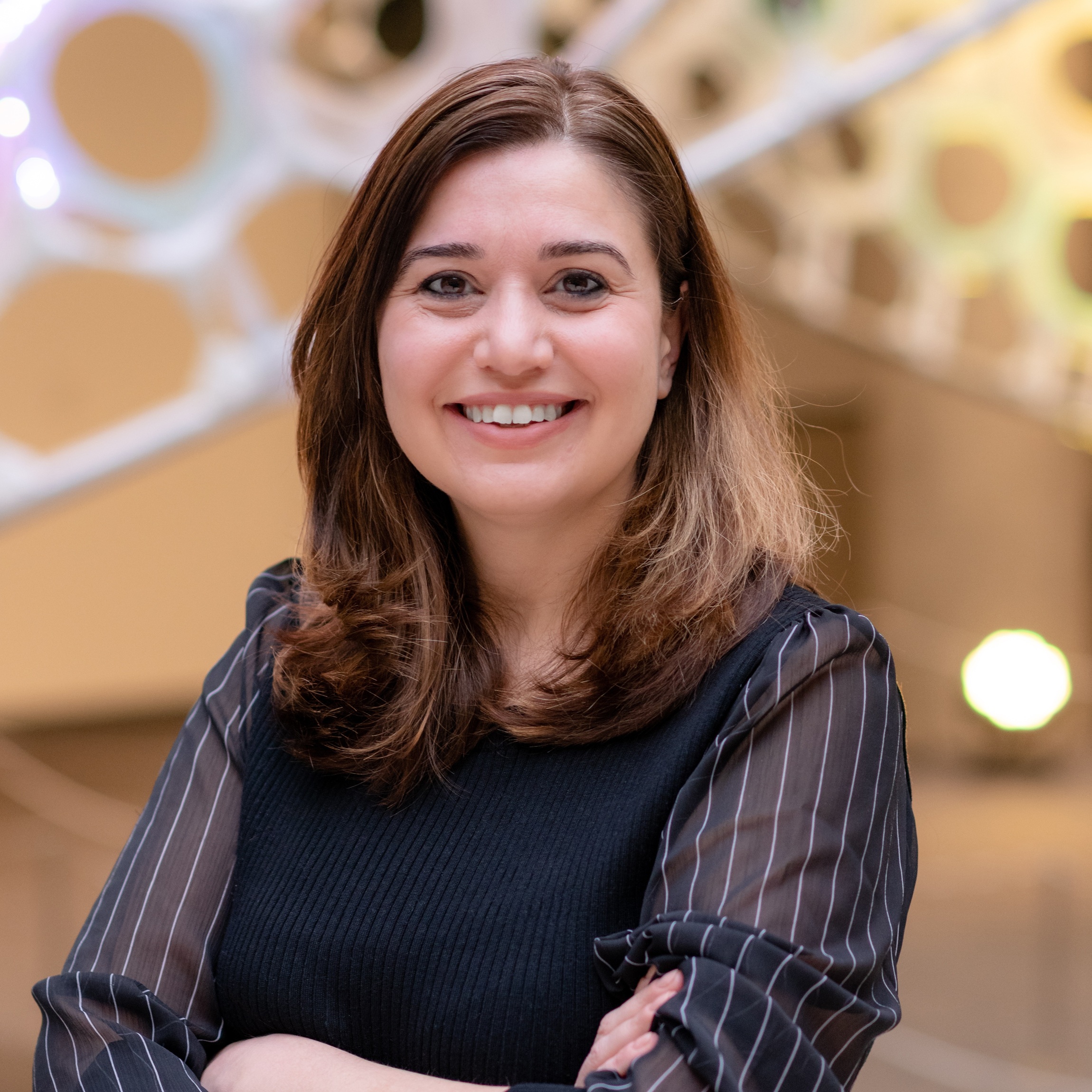 Ece Kamar is Distinguished Scientist, Corporate Vice President and the Managing Director of the AI Frontiers Lab at Microsoft Research. She leads research and development towards pushing the frontiers of AI capabilities. Releases from her lab includes Phi family of models and libraries to empower agentic work, including AutoGen, MagenticOne and MagenticUI. Ece has a decade of experience studying the impact of AI on society and developing AI systems that are reliable, unbiased and trustworthy. She has been instrumental in building the Responsible AI efforts inside Microsoft. She serves as Technical Advisor for Microsoft’s Internal Committee on AI, Engineering and Ethics. Ece received a Bachelor of Science in Computer Engineering from Sabanci University in Istanbul. She completed her PhD at Harvard University, where she has worked with Prof. Barbara Grosz on human-AI collaboration. Ece is an Affiliate Faculty in the Department of Computer Science and Engineering at the University of Washington and is an Adjunct Faculty at Sabanci University. She was a member of the first study panel of Stanford’s AI100. She is currently serving on the National Academies' Computer Science and Telecommunications Board (CSTB). She has been on the organizing committees of top AI and HCI conferences and received multiple best paper awards for her work.
Ece Kamar is Distinguished Scientist, Corporate Vice President and the Managing Director of the AI Frontiers Lab at Microsoft Research. She leads research and development towards pushing the frontiers of AI capabilities. Releases from her lab includes Phi family of models and libraries to empower agentic work, including AutoGen, MagenticOne and MagenticUI. Ece has a decade of experience studying the impact of AI on society and developing AI systems that are reliable, unbiased and trustworthy. She has been instrumental in building the Responsible AI efforts inside Microsoft. She serves as Technical Advisor for Microsoft’s Internal Committee on AI, Engineering and Ethics. Ece received a Bachelor of Science in Computer Engineering from Sabanci University in Istanbul. She completed her PhD at Harvard University, where she has worked with Prof. Barbara Grosz on human-AI collaboration. Ece is an Affiliate Faculty in the Department of Computer Science and Engineering at the University of Washington and is an Adjunct Faculty at Sabanci University. She was a member of the first study panel of Stanford’s AI100. She is currently serving on the National Academies' Computer Science and Telecommunications Board (CSTB). She has been on the organizing committees of top AI and HCI conferences and received multiple best paper awards for her work.
Luc Steels
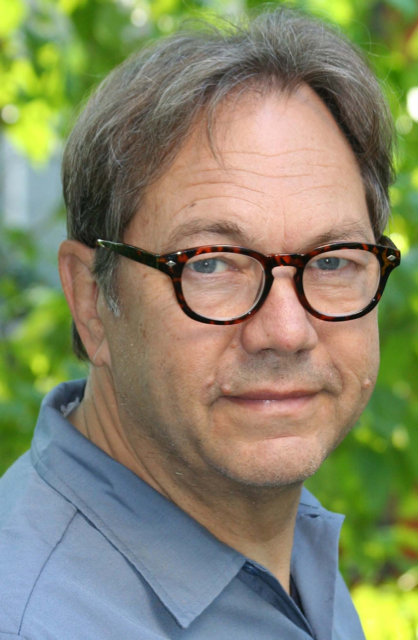 Luc Steels is a pioneer of artificial intelligence research in Europe. After studies and research, first in languages and literature at the university of Antwerp and then at the MIT AI Lab in the late seventies (advisor Marvin Minsky), he returned to Europe in 1983 as professor of computer science at the Free University of Brussels (VUB). He founded the Artificial Intelligence Laboratory in 1983 and became its acting director until 2011. In 1996 he became founding director of the Sony Computer Science Laboratory in Paris. From 2011 he joined the Catalan Institute for Advanced Studies (ICREA) as research professor, associated with the Institute for Evolutionary Biology (IBE, UPF-CSIC) in Barcelona. From 2018 he started activities in Venice, first at Ca’Foscari University in the Department of Management and the European Center for Living Technologies, then at the Venice International University in Venice (Italy) until 2025. During all this time he was not only active as an AI researcher, but also as a prolific writer (Google scholar lists more than 400 papers more than 24,000 citations and an h-index of 74 and an i-index of 221). He also published a dozen edited volumes and monographs about knowledge-based AI, behavior-based robotics, artificial life, AI in education, evolutionary linguistics and computational music. In 2022, Steels received the EURAI Distinguished Service Award, highest distinction for AI in Europe.
Luc Steels is a pioneer of artificial intelligence research in Europe. After studies and research, first in languages and literature at the university of Antwerp and then at the MIT AI Lab in the late seventies (advisor Marvin Minsky), he returned to Europe in 1983 as professor of computer science at the Free University of Brussels (VUB). He founded the Artificial Intelligence Laboratory in 1983 and became its acting director until 2011. In 1996 he became founding director of the Sony Computer Science Laboratory in Paris. From 2011 he joined the Catalan Institute for Advanced Studies (ICREA) as research professor, associated with the Institute for Evolutionary Biology (IBE, UPF-CSIC) in Barcelona. From 2018 he started activities in Venice, first at Ca’Foscari University in the Department of Management and the European Center for Living Technologies, then at the Venice International University in Venice (Italy) until 2025. During all this time he was not only active as an AI researcher, but also as a prolific writer (Google scholar lists more than 400 papers more than 24,000 citations and an h-index of 74 and an i-index of 221). He also published a dozen edited volumes and monographs about knowledge-based AI, behavior-based robotics, artificial life, AI in education, evolutionary linguistics and computational music. In 2022, Steels received the EURAI Distinguished Service Award, highest distinction for AI in Europe.
Marina Calloni
 Marina Calloni is Full Professor and Chair of Political and Social Philosophy at the University of Milan-Bicocca. She is a member of the Board of Directors and Director of the research center ADV – Against Domestic Violence. She holds a PhD in Philosophy and a PhD in Social and Political Sciences. In 2020, she was awarded the title of Officer of the Order of Merit of the Italian Republic by the President of the Italian Republic, Sergio Mattarella. She is President of the Italian Society of Critical Theory. She worked on the archives of the Frankfurt School and was a post-doctoral researcher with Habermas in Frankfurt, as well as one of his Italian translators. She has been a guest professor at the New School for Social Research in New York and a fellow at the Italian Academy – Columbia University. She has taught at the Universities of Notre Dame, Łódź, Frankfurt a.M., Bremen, Vienna, Lugano, Hanover, and Kurume. She was a senior researcher at the Gender Institute of the London School of Economics and Political Science, directing the International Network for Research on Gender.
Marina Calloni is Full Professor and Chair of Political and Social Philosophy at the University of Milan-Bicocca. She is a member of the Board of Directors and Director of the research center ADV – Against Domestic Violence. She holds a PhD in Philosophy and a PhD in Social and Political Sciences. In 2020, she was awarded the title of Officer of the Order of Merit of the Italian Republic by the President of the Italian Republic, Sergio Mattarella. She is President of the Italian Society of Critical Theory. She worked on the archives of the Frankfurt School and was a post-doctoral researcher with Habermas in Frankfurt, as well as one of his Italian translators. She has been a guest professor at the New School for Social Research in New York and a fellow at the Italian Academy – Columbia University. She has taught at the Universities of Notre Dame, Łódź, Frankfurt a.M., Bremen, Vienna, Lugano, Hanover, and Kurume. She was a senior researcher at the Gender Institute of the London School of Economics and Political Science, directing the International Network for Research on Gender.
She served as advisor to the Parliamentary Commission of Inquiry on Femicide and All Forms of Gender Violence at the Senate of the Italian Republic. She collaborates with the Council of Europe – OCEAN (Open Council of Europe Academic Network) on the implementation of the Istanbul Convention, directing the academic network UN.I.RE.
She has led numerous national and international projects in collaboration with universities and supranational institutions (United Nations, European Commission, Council of Europe) and has lectured in over 50 countries.
She is the editor of the book series RiGenerAzioni published by Castelvecchi, and serves on the editorial boards of several national and international journals.
She has published 290 scientific works in multiple languages on topics including social philosophy, political theory, human rights and fundamental freedoms, gender issues, critical theory of society, violence, citizenship and the public sphere, research networks, and international cooperation.
Shawn McGuffey
 C. Shawn McGuffey, Ph.D., is Professor of Sociology and past Director of African & African Diaspora Studies at Boston College. A native of Lexington, Kentucky, Dr. McGuffey’s professional work primarily highlights how race, gender, sexuality and social class both constrain and create the choices survivors pursue in the aftermath of trauma in the U.S. and throughout the African Diaspora. Two of his current projects focus on sexual trauma. One examines how gender, sexuality, and race shape parental responses to child sexual abuse; and the other investigates the social psychology of sexual assault survivors in the U.S., Ghana, South Africa, and Rwanda. His most recent project examines Black and feminist geographies.
C. Shawn McGuffey, Ph.D., is Professor of Sociology and past Director of African & African Diaspora Studies at Boston College. A native of Lexington, Kentucky, Dr. McGuffey’s professional work primarily highlights how race, gender, sexuality and social class both constrain and create the choices survivors pursue in the aftermath of trauma in the U.S. and throughout the African Diaspora. Two of his current projects focus on sexual trauma. One examines how gender, sexuality, and race shape parental responses to child sexual abuse; and the other investigates the social psychology of sexual assault survivors in the U.S., Ghana, South Africa, and Rwanda. His most recent project examines Black and feminist geographies.
Dr. McGuffey’s scholarship has been recognized by multiple academic associations. He is the recipient of four awards from three different sections of the American Sociological Association. The Society for the Study of Social Problems honored him with the Kimberlé Crenshaw Award in 2016 and in 2022 with the Arlene Kaplan Daniels Award for the best article on women and social justice. In 2022 he also received the Distinguished Publication Award from the Association for Women in Psychology. In 2023 he received the Best Article Award from the Southeastern Division of the American Association of Geographers. The Ford Foundation, Black Rape Survivors Project, a Research Incentive Grant, and the Institute for Liberal Arts have supported his research. He has given invited lectures at the Center for Children and Childhood Studies at Rutgers University, Harvard University, MIT, and the University of the Western Cape in South Africa.
He has also served on the Harassment Committee of the American Sociological Association and the Eastern Sociological Society’s Code of Conduct Committee – both charged with developing policies around various forms of harassment. In Boston he has led and served on the boards of multiple non-profits that address issues of racial justice and LGBT rights, domestic violence, and youth empowerment; and has been a contributor to Basic Black on WGBH public television.
Manfred Nowak
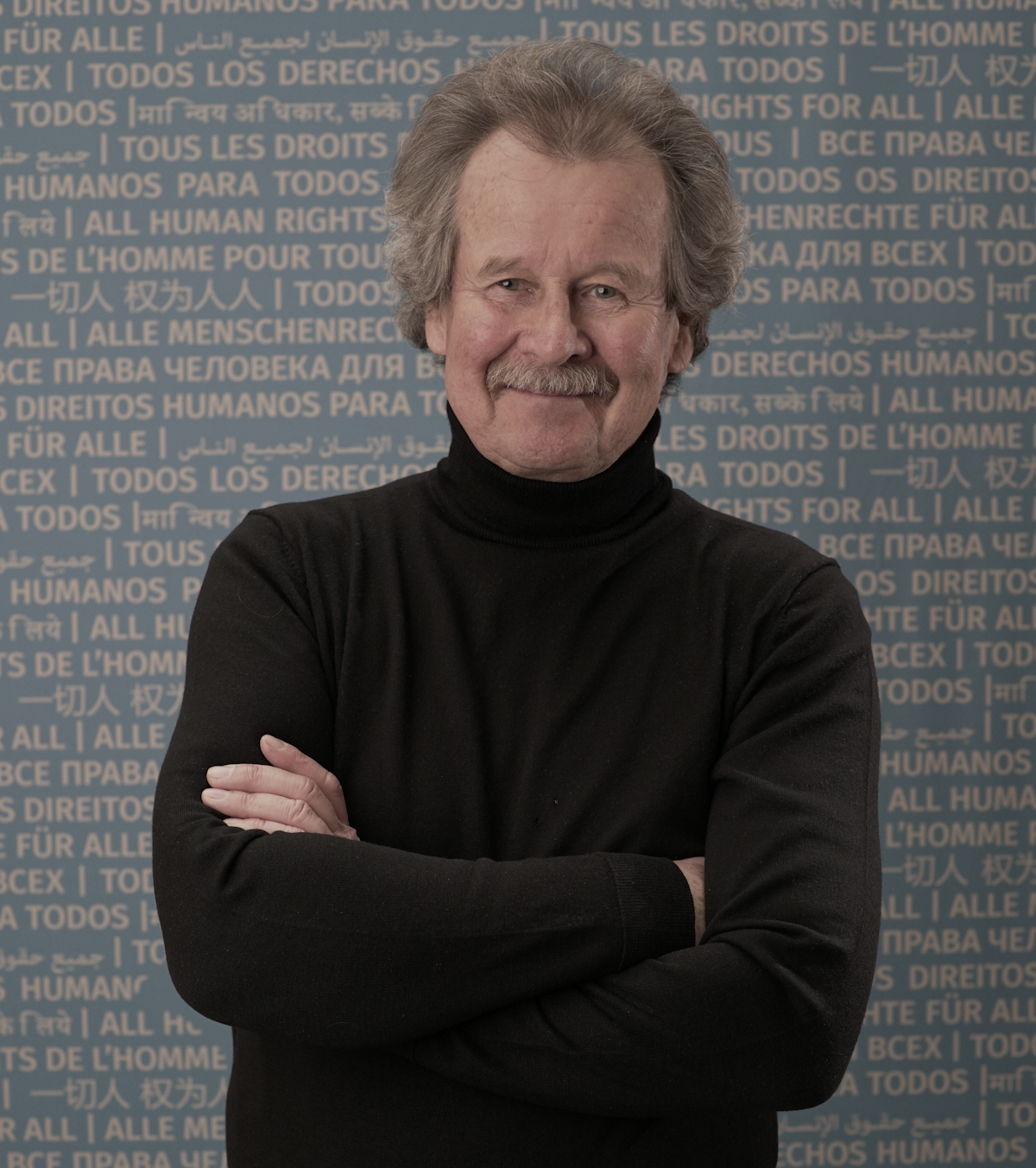 Manfred Nowak is Secretary General of the Global Campus of Human Rights in Venice and Director of the Vienna Master of Arts in Applied Human Rights at the University of Applied Arts in Vienna. He previously served in various expert functions, such as UN Expert on enforced disappearances (1993-2006), UN Special Rapporteur on Torture (2004-2010), judge at the Human Rights Chamber for Bosnia and Herzegovina (1996-2003) and Vice Chairperson of the EU Fundamental Rights Agency (2013-2018). In 2016 he was appointed Independent Expert leading the UN Global Study on Children Deprived of Liberty. He was Director of the Netherlands Institute of Human Rights at Utrecht University (SIM, 1987-1989) and of the Ludwig Boltzmann Institute of Human Rights at Vienna University (BIM, 1992-2019) as well as Visiting Professor at the University of Lund (2002-2003), the Graduate Institute of International and Development Studies in Geneva (2008-2009), and at Stanford University in Palo Alto (2014). He is author of more than 600 publications in the fields of public international law and human rights.
Manfred Nowak is Secretary General of the Global Campus of Human Rights in Venice and Director of the Vienna Master of Arts in Applied Human Rights at the University of Applied Arts in Vienna. He previously served in various expert functions, such as UN Expert on enforced disappearances (1993-2006), UN Special Rapporteur on Torture (2004-2010), judge at the Human Rights Chamber for Bosnia and Herzegovina (1996-2003) and Vice Chairperson of the EU Fundamental Rights Agency (2013-2018). In 2016 he was appointed Independent Expert leading the UN Global Study on Children Deprived of Liberty. He was Director of the Netherlands Institute of Human Rights at Utrecht University (SIM, 1987-1989) and of the Ludwig Boltzmann Institute of Human Rights at Vienna University (BIM, 1992-2019) as well as Visiting Professor at the University of Lund (2002-2003), the Graduate Institute of International and Development Studies in Geneva (2008-2009), and at Stanford University in Palo Alto (2014). He is author of more than 600 publications in the fields of public international law and human rights.
Simone Borghesi
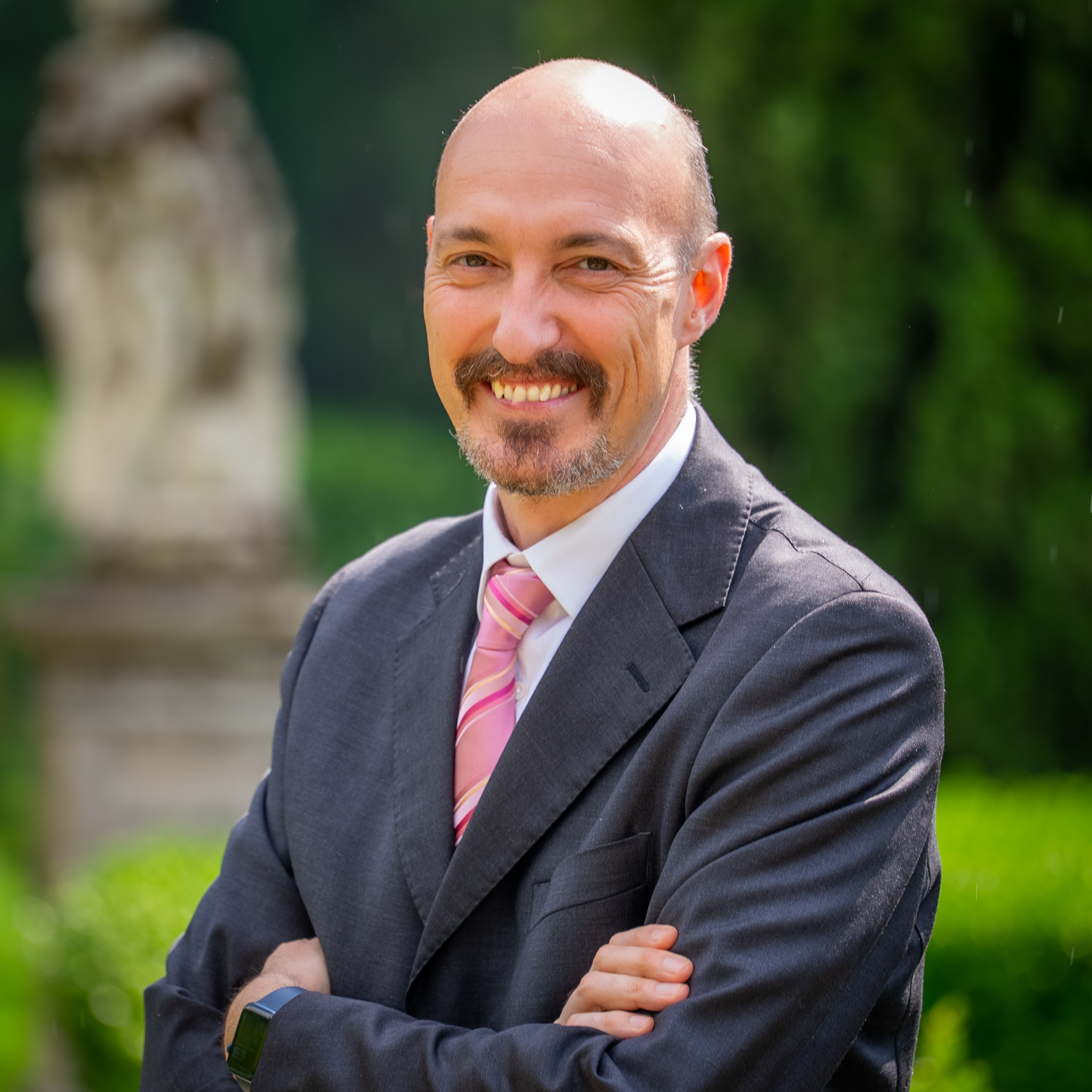 Simone Borghesi is Director of the Florence School of Regulation – Climate at the European University Institute (EUI), President of the European Association of Environmental and Resource Economists (EAERE) and Vice Rector for International Relations at the University of Siena. He has been President of the Italian Association of Environmental and Resource Economists (2018-19) and Secretary General of the Policy Outreach Committee of EAERE (2018-23). He received a M.Sc. at University College London (1996) and a Ph.D. at the European University Institute (2001). He worked at the International Monetary Fund (1998) and FEEM Milan (1999). He was visiting scholar at INRA (2013), University of Cambridge (2015), ETH Zurich (2016). He has directed several LIFE projects on Emissions Trading (SIDE, DICET, COASE) and the EUI unit in past and present Horizon projects (e.g. Innopath, Capable, Spes).
Simone Borghesi is Director of the Florence School of Regulation – Climate at the European University Institute (EUI), President of the European Association of Environmental and Resource Economists (EAERE) and Vice Rector for International Relations at the University of Siena. He has been President of the Italian Association of Environmental and Resource Economists (2018-19) and Secretary General of the Policy Outreach Committee of EAERE (2018-23). He received a M.Sc. at University College London (1996) and a Ph.D. at the European University Institute (2001). He worked at the International Monetary Fund (1998) and FEEM Milan (1999). He was visiting scholar at INRA (2013), University of Cambridge (2015), ETH Zurich (2016). He has directed several LIFE projects on Emissions Trading (SIDE, DICET, COASE) and the EUI unit in past and present Horizon projects (e.g. Innopath, Capable, Spes).
He is member of the WCEREA – World Council of Environmental and Resource Economists Associations, of the CRM Academic Advisory Council of Brookings Institution (Washington D.C.), of the Economics Advisory Council of the Environmental Defense Fund (New York) and of CEPR – Research and Policy Network on Climate Change.
His main research areas are emissions trading, European climate policies, globalisation and sustainable development, economic growth and environmental degradation, evolutionary game models.
Rika Preiser
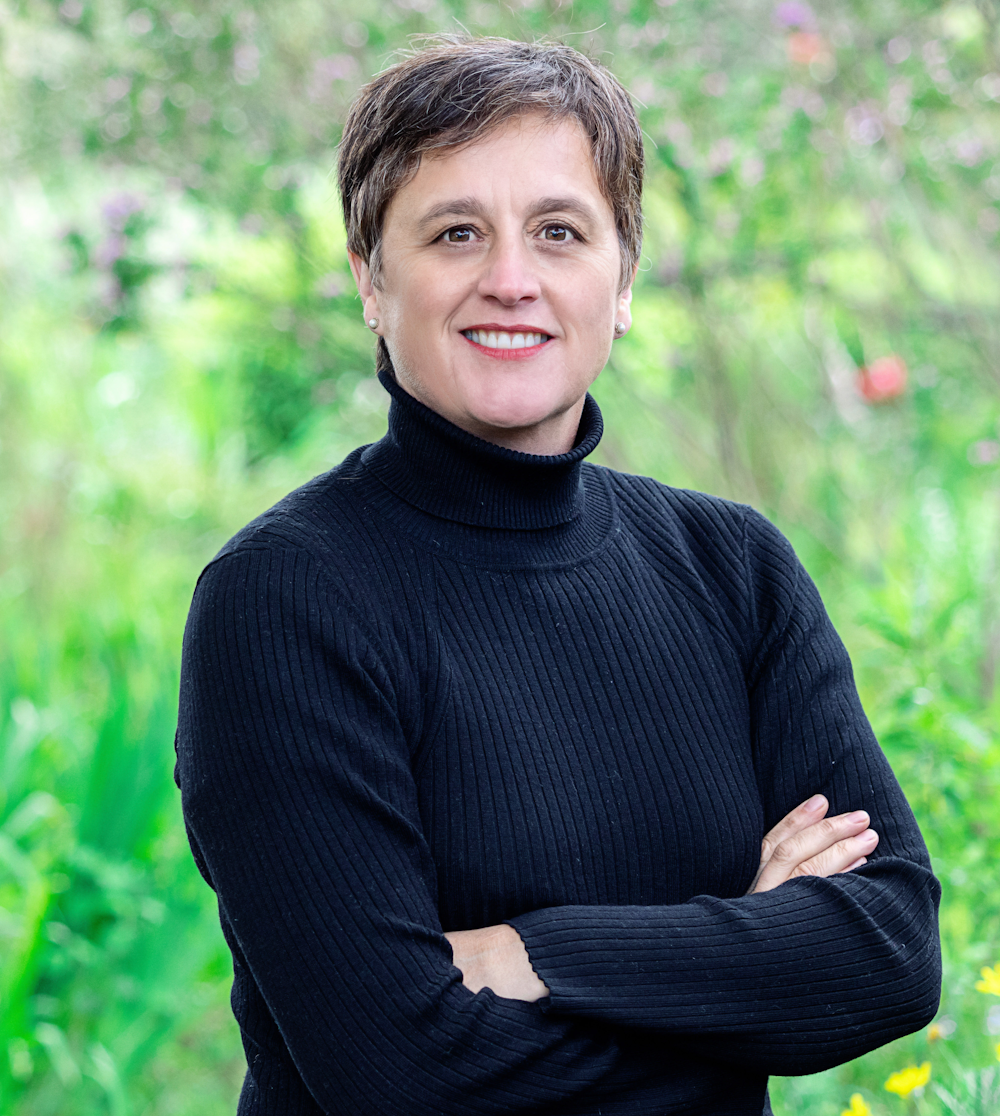 Rika Preiser is Professor at the Centre for Sustainability Transitions (CST) at Stellenbosch University, South Africa, and UNESCO Co-Chair in Complexity and Transformative African Futures. Her research weaves together philosophical inquiry, complexity science, and environmental ethics to address urgent social-ecological challenges. She focuses on relational and embodied approaches to human–nature interactions, and investigates how creative, experimental methods can support regenerative change. Her work highlights the role of critical reflection and systemic imagination in fostering meaningful sustainability transformations.
Rika Preiser is Professor at the Centre for Sustainability Transitions (CST) at Stellenbosch University, South Africa, and UNESCO Co-Chair in Complexity and Transformative African Futures. Her research weaves together philosophical inquiry, complexity science, and environmental ethics to address urgent social-ecological challenges. She focuses on relational and embodied approaches to human–nature interactions, and investigates how creative, experimental methods can support regenerative change. Her work highlights the role of critical reflection and systemic imagination in fostering meaningful sustainability transformations.
Shuming Liu
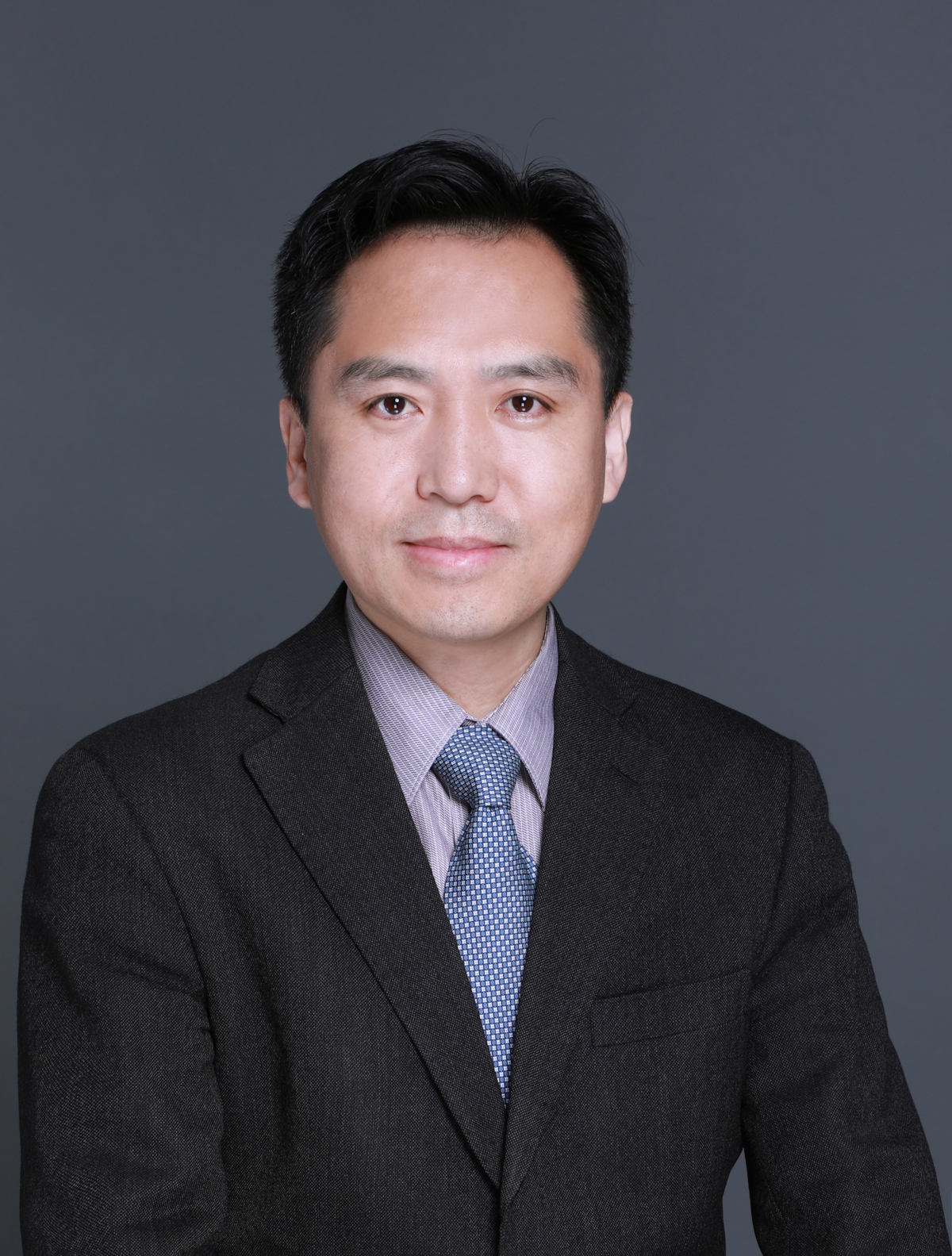 Dean, School of Environment, Tsinghua University.
Dean, School of Environment, Tsinghua University.
He received the Ph.D. degree from University of Paisley in 2004, and then worked as post-doc in Imperial College and Research Fellow in Exeter University. In 2007, He became an Associate Professor at Tsinghua University, and then in 2018 became Tenured Professor.
He has been teaching and doing research in the Environmental Engineering field for over 20 years. He served as Secretary General of China Water Industry Association, Editor of AQUA - Water Infrastructure, Ecosystems and Society, Secretary General of Water Treatment and Reuse Association of China, Chair of ISO/SC2, Convener of ISO/TC282/SC2/WG2 (Water Reuse for Urban Areas), Member of IWA Specialist Group on Water Loss, Committee Member of China Standardization for Water Industry.
He has strong academic background and experience in the field of urban water system, including sustainable urban water management, principle and technology of urban water supply security, resilience of urban water system, leakage control and water-energy nexus. He has been the principal scientist or scientist of national research projects in the field of water distribution and management, is familiar with the development and application of the technologies, and has the strong leadership skills and capability in project organization and management. As principal investigator (PI) and co-investigator (CI), he has led more than 30 projects. His work has helped to support different aspects of society, including drafting important national policy documents, especially on leakage control and drinking water safety. Examples include the National Guideline for Implementation of District Metering Areas (by the Ministry of Housing and Urban-Rural Development), developing water management tools in more than 20 water utilities, and support in over 100 cities in leakage control. He has authored 6 books, 70 patents, 200 academic articles, 5 ISO standards and 7 national/industry standards. He has received 7 awards, including the 2nd National Prize for Progress in Science and Technology and 1st Ministerial/Provincial Prize for Scientific and Technological Advancement.
Nicola Tollin
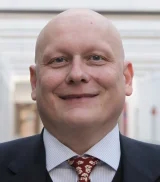 Nicola Tollin is Professor with special responsibilities in Urban Resilience, Chairholder and coordinator of the UNESCO Chair on Urban Resilience at University of Southern Denmark, within the section of Civil and Architectural Engineering.
Nicola Tollin is Professor with special responsibilities in Urban Resilience, Chairholder and coordinator of the UNESCO Chair on Urban Resilience at University of Southern Denmark, within the section of Civil and Architectural Engineering.
Nicola holds a MSc in architecture from University IUAV of Venice (sustainable urban development), a M.Phil. in sustainability from Technical University of Catalunya (sustainable urban development evaluation) and a Ph.D. in sustainability from Technical University of Catalunya (urban resilience transition).
Nicola worked as researcher and lecturer at University IUAV of Venice (Department of Urbanism), Technical University of Denmark (Department of Civil Engineering), Technical University of Catalunya (UNESCO Chair on Sustainability), and University of Bradford (Centre for Sustainable Environments).
He has over 20 years of international experience in research, capacity-building, education on sustainable development, resilience, climate change, circular economy and innovation focusing on cities and regions. He has coordinated/participated in over 80 research, education and urban development projects worldwide, including 13 EU funded, in several countries including Colombia, Philippines, Argentina, Chile, Mexico, Indonesia, Thailand, India, United Arab Emirates and Brazil.
He authored over 100 scientific publications, delivered over 150 speeches/presentations in 30 countries worldwide, and co-organized over 30 international conferences and official side events at UN’s conferences. He has been serving as expert for several private and public organizations, including local-authorities, European Commission and United Nations programs and agencies, such as UN-Habitat and UNFCCC.
Nicola is co-founder of Recycling Cities International Network RECNET, Executive Director of RESURBE International Program on Urban Resilience and Editor in Chief of the Resilient Cities book series published by Springer-Nature.


















